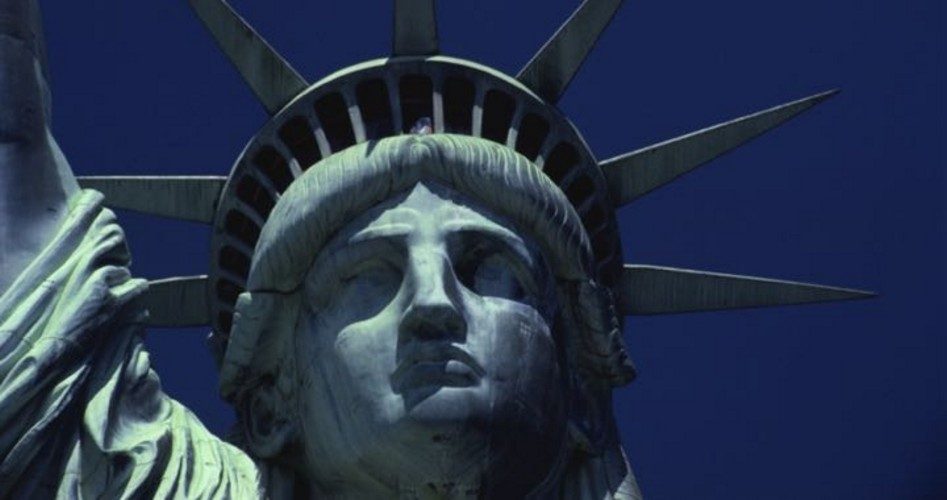
The Senate continued on February 15 to work on drafting an immigration bill that would garner enough support to have a chance for passage. The upper house is considering at least four immigration measures. The major issue to be resolved is how to handle the “Dreamers” — the 1.8 million young adults who were brought to the United States illegally as children and have been protected from deportation since the Obama administration under the Deferred Action for Childhood Arrivals, or DACA, program.
The DACA program’s protections will start expiring on March 5, but federal judges have blocked the administration’s plans to end DACA while litigation over the matter continues.
Attorney General Jeff Sessions announced on September 5 that the DACA program will end in six months, giving Congress time to find a legislative solution for people enrolled in the program.
While campaigning for the presidency, candidate Trump promised that he would “immediately terminate” DACA after being elected. However, in recent months, he has increasingly demonstrated a willingness to compromise with Democrats by supporting legislation that would offer the same protection from deportation and extended work authorization that the Obama administration granted.
In return for offering protection for deportation — and even eventual citizenship — for the Dreamers, Trump wants a $25 billion fund to strengthen border security and possibly even construct part of a border wall with Mexico, which was a major campaign plank in Trump’s 2016 presidential campaign.
A Reuters report on February 15 cited a statement from the Department of Homeland Security that was critical of one of proposed bills in the Senate, a bipartisan plan led by Senator Susan Collins (R-Maine) that would prevent DHS officers from being able to remove millions of undocumented illegal aliens from the country. DHS said the plan “is an egregious violation of the four compromise pillars laid out by the President’s immigration reform framework.”
Trump named those four pillars in his State of the Union address on January 20. They are: 1) Granting a path to citizenship for the 1.8 million illegal immigrants who were brought here by their parents at a young age; 2) Securing the border; 3) Ending the visa lottery program, and 4) Ending chain migration.
The report noted that Trump has backed a measure proposed by Senator Chuck Grassley (R-Iowa) that includes all of his pillars, but is unlikely to win support from enough Democrats in the Senate to achieve passage.
Reuters noted that a third bill that focuses only on Dreamers and border security, by John McCain (R-Ariz.) and Chris Coons (D-Del.), has been rejected by Trump. And yet a fourth measure, introduced by Pat Toomey (R-Pa.), which is not expected to pass, focuses on punishing “sanctuary cities” that do not cooperate with federal immigration enforcement efforts.
White House Press Secretary Sarah Huckabee Sanders posted a statement on the White House website on February 15 about the Schumer-Rounds-Collins Amendment. This is an apparent bipartisan proposal offered by Senators Chuck Schumer (D-N.Y.), Mike Rounds (R-S.D.), and Susan Collins (R-Maine.) The statement said:
The Administration strongly opposes passage of the Schumer-Rounds-Collins Amendment. This Amendment would drastically change our national immigration policy for the worse by weakening border security and undercutting existing immigration law. Specifically, preventing enforcement with respect to people who entered our country illegally before a date that is in the future would produce a flood of new illegal immigration in the coming months. The Amendment would undermine the safety and security of American families and impede economic growth for American workers.
We reported in a February 6 article that the bill introduced by McCain and Coons (S.2367) would grant relief from deportation and a path to citizenship for the young illegal aliens known as “Dreamers.”
The official description of S.2367 states that in addition to providing “relief from removal and adjustment of status” of the young illegal aliens, it also seeks to improve border security and foster United States engagement in Central America.
While the bill calls for improving border security, it does not authorize spending the $25 billion that President Trump is seeking to fortify the U.S.-Mexican border with new wall and fence construction.
Additionally, the McCain-Coons legislation would grant legal status to so-called Dreamers who have been in the country since 2013, which amounts to a greater number of illegal aliens than the 1.8 million President Trump now supports legalizing.
Furthermore, the bill says nothing about ending chain migration or the visa lottery program — two of the four pillars of the immigration plan Trump said he would offer to Congress during his State of the Union speech.
A report in The Hill observed that although McCain and Coons believe their bill could be a starting point for negotiations among a wider group of senators, Trump voiced criticism of the measure before it was even formally introduced.
The president said it was a non-starter to offer a fix for DACA program without providing funding for the border wall. “Any deal on DACA that does not include STRONG border security and the desperately needed WALL is a total waste of time,” Trump wrote in a tweet. “March 5th is rapidly approaching and the Dems seem not to care about DACA. Make a deal!”
Photo: Clipart.com
Related articles:
Trump Appears to be Negative Toward McCain-Coons Immigration Plan
Senator Cruz Opposes Amnesty for Anyone Entering America Illegally
Trump On Citizenship for Dreamers: “We’re Going to Morph Into It”
“Bill of Love”: Trump’s Ongoing Effort to Strike Deal With Democrats for DACA Recipients
Trump and Democrats Working on Deal Over Future of DACA Recipients Before Program Expires



